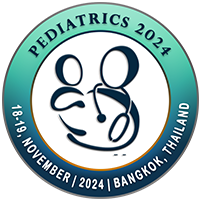
Minyahil Alebachew Woldu
Addis Ababa University, EthiopiaTitle: The Effect of Caffeine on Pregnancy: Fact or Myth?
Abstract
There are reports of caffeine crossing the placenta and causing effects in the fetus. However there is no unified consensus in the outcomes and client consultation approaches. Reviewing published articles about the outcomes and impact of caffeine during pregnancy could be beneficial to support mothers during antenatal cares and to prevent possible health setbacks. As per the majority of the reviewed articles, weak bases that are lipophilic and non-ionized, like caffeine, diffuse across the placental barrier and become ionized in the more acidic fetal blood as a result of ion trapping. Hence, reduced fetal skeleton growth, low birth weight (LBW), intrauterine growth retardation (IUGR), delayed fetal development, uneven childhood body fat distribution, increased risk of obesity, risk of type 2 diabetes, and increased risk of abortion; all have been shown to be associated with ion-trapping effects of coffee, in epidemiological studies. Hence, avoiding the consumption of excess amount of coffee and related caffeine containing substances such as chocolate and tea during pregnancy is a wise approach so as to be in the safest side of child-maternity health.
Biography
Minyahil A. Woldu was born in H/Mariam, Ethiopia in 1981. He graduated from the School of Pharmacy, Mekelle University in 2009 and received MSc from Jimma University in 2012. He has joined Muhimbili University of Health and Allied Sciences (MUHAS) for his Ph.D study in 2017 under the guidance of Prof. Omary Minzi (MUHAS) and Prof. Ephrem Engidawork (AAU), and he is currently in his final year of study. His research interest includes but not limited to chronic care pharmacy, pediatric pharmacy, and drug therapy monitoring and outcome study. He published 50+ research articles in reputable scientific journals.

